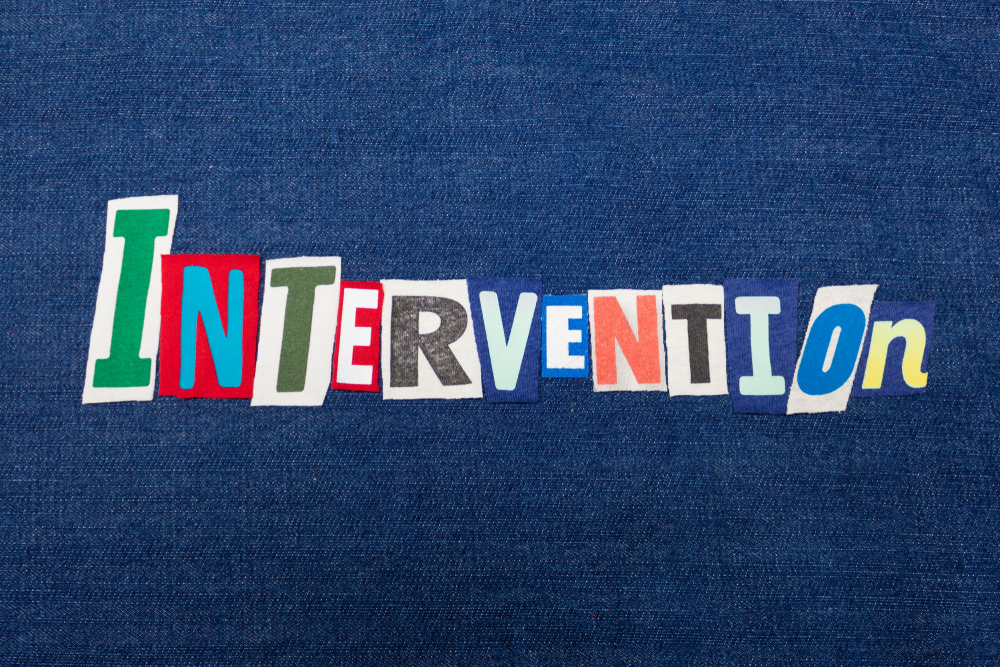Last Updated:
June 16th, 2025
While time may be of the essence for someone in need of an alcohol intervention, it’s also critical to remember there is a right time, place and set of circumstances to ensure it’s delivered as effectively as possible.
An intervention means careful planning; it isn’t dropped on a person without forethought. This help guide can support you if your loved one needs an alcohol intervention, before the problem becomes too much to bear.
What is an alcohol intervention?
For a person in the clutches of alcohol addiction, there may come a time when they lose every facet of control, and an outside intervention is needed. An intervention is a planned conversation with concrete outcomes in which a group can air their grievances and hopefully get through to the person in need.
Interventions are organised to help a person with a substance or drinking problem. In most cases, family and close friends of a suffering person will organise and carry out the intervention, though outside professional help can be utilised.
If a person’s alcohol addiction has become dangerous and urgent help is needed, then an alcohol intervention may be the only way to break through and kickstart the recovery process.
The greatest challenges in alcohol intervention
Interventions carry weight and there are many inherent challenges in organising one. Many of us hear the word “intervention” with a feeling of seriousness and gravitas. This is because most interventions are organised by people who truly care about and love the person battling alcohol addiction.
Knowing you need to carry out an action on behalf of a loved one can be deeply challenging. If the problem weren’t severe, then drastic measures wouldn’t be needed. In addition, if the love wasn’t there in the first place, a person might give up trying to help and turn their back on an alcoholic.
Another challenge is the idea of giving a loved one ultimatums, rules or promises they need to stick to. Not every intervention is the same, and you may not want to force your loved one into promises. However, the benefits of reaching sobriety and stepping into a brighter future completely outweigh their desire to continue drinking. Careful consideration should be given to the use of ultimatums.
What makes intervention different from “just talking about the problem”?
Generally speaking, an intervention is more severe than simply talking to your loved one about their alcohol use. If you have a loved one who has only recently started to develop an alcohol addiction, having a conversation with them about your feelings may be new or slightly uncomfortable.
Further into living with a loved one’s addiction, there may have been many times when you felt like your heartfelt expressions fell on deaf ears. For anyone who has lived for a long time with an addicted person, it can become tragically common to feel as though your words can’t get through to them. You may have tried to escalate a conversation into ”having the talk” with them. Even still, giving it this name may downplay the gravity of the situation.
What are the signs that show an intervention may be needed?
There may already be moments where you’ve quietly wondered whether your loved one should cut back on their drinking. Maybe the initial laughter in the first hour of drinking fades into arguments, or their “one drink” turns into five in every instance. But knowing when casual concern becomes a call for intervention is something else entirely, and it can be painful to admit that things have gone too far.
Still, recognising the need for an intervention is a powerful and compassionate first step. Here are some of the most common signs that an alcohol intervention is required:
- You or a family member is in danger: This includes physical aggression, reckless behaviour like drink-driving, or violent outbursts. If safety is compromised, an intervention is a matter of urgency.
- You clearly see their health deteriorating: Alcohol misuse takes a toll on the body and mind. Rapid weight loss, frequent illness, memory issues, or mood swings can all signal that the alcohol is causing enough harm to warrant intervention.
- You aren’t the only person who thinks it: If friends, family members, or even coworkers share your concerns, that’s an important sign. When multiple people notice the same patterns, it’s unlikely to be an overreaction.
How to plan an effective alcohol intervention
Generally speaking, an intervention that isn’t properly planned beforehand will not be as effective. A rushed, overly emotional or accusatory intervention may even make a person want to shell out even more.
Make sure you use some of these steps to optimise an alcohol intervention plan:
Build the right support group
Start by gathering a small, trusted group of people who have been directly affected by your loved one’s drinking. This might include close family, long-time friends, or even a colleague if appropriate. Everyone involved should share the same goal: to express concern and offer support, not blame or shame.
You may also want to involve a professional interventionist, addiction counsellor or GP. Their experience can help keep the conversation focused and prevent emotional escalation.
Choose the right setting and tone
Avoid overly personal or emotionally charged spaces like a bedroom or family kitchen. Instead, choose a quiet, neutral place where your loved one won’t feel cornered or ambushed.
Each person should prepare calmly and be ready to share how the drinking has affected them. Use “I” statements, like “I feel scared when you ___” or “I am feeling worried for you because ___.” Using “I statements” rather than “you statements” can help to remove the barbs from sensitive conversations and avoid sounding accusatory.
Take steps towards treatment options
The overarching goal of an intervention is to offer a way forward, not to focus on punishments. It will benefit everyone if you research treatment options beforehand and raise it in the intervention session. It’s best to avoid threatening consequences unless you’re fully prepared to follow through. Clarity, consistency and kindness will go further than anger or guilt.
What happens after the intervention?
An alcohol intervention is likely to be emotionally intense for everyone involved.
- If the help is accepted: It may be best to act quickly, so have your treatment options readily available. Be completely supportive and encouraging towards their positive decision.
- If the help isn’t accepted: A refusal may not mean complete failure, as you’ve delivered a clear message. That message may take time to settle in. Remain sturdy with your boundaries and avoid enabling behaviour. Sometimes, the seed you plant today becomes the decision they make tomorrow.
Where can I find support for an addiction?
If you’re considering an intervention, you’ve already taken the first courageous step. Trying to help someone through alcohol addiction can feel overwhelming, but you don’t have to do it alone.
At UKAT’s Oasis Bradford clinic, we support families through every stage of the recovery process, including planning and delivering effective alcohol interventions. Our team offers expert guidance, professional treatment plans and ongoing support for both individuals and their loved ones.
Whether your loved one is ready to accept help or not, we can help you move forward with clarity and confidence. One phone call could be the turning point that saves a loved one before it’s too late.





